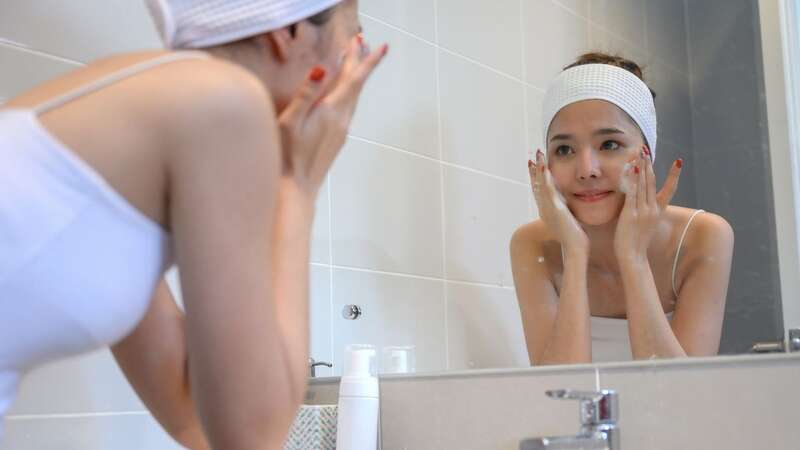
With so many different skincare products on the market, so it can be tricky to know what each product does and how to use it.
One product, in particular, has been getting a lot of attention online recently, and you may hear all your favourite skincare gurus and makeup artists talking about retinol - but what actually is it?
Retinol is a form of Vitamin A and is added to creams to boost collagen. It plumps out the skin, helping to tackle fine lines and wrinkles as well as helping to improve skin texture and colour.
However, it is a potent skincare product that has to be used correctly, so we chatted to skin specialists about the hot product, exploring what it is, why we should be using it, and how to use it correctly.
It's mostly beneficial for mature and/or and acne-prone skin and can help dry oily skin while tackling skin texture issues and pigmentation. Dr Ross Perry, from skin clinics chain Cosmedics said that it's a great tool to combat acne and signs of ageing. However, he said it's best to apply it at night and wear moisturiser and sunscreen the next morning due to the fact it can make the top layer of your skin dry and flaky.
 Katie Price shows off results of 'painful' breast op as she unbandages boobs
Katie Price shows off results of 'painful' breast op as she unbandages boobs
"It should never be applied before going out in the sun as it can make your skin more susceptible to UV radiation. So always wear an SPF," he said. "We always advise you to start using retinol slowly and gradually building up once or twice a week to daily eventually, depending on your skin type.
"When you first start using it you may experience a bit of redness but if you build up gradually then your skin shall get used to it. Any more of a reaction than that I would be cautious to continue as your skin may be too sensitive for it."
However, Dr Perry warned it's not suitable for everyone, including those with sensitive, broken skin or sun-damaged skin as it will aggravate it. Pregnant and breastfeeding women are also advised not to use retinol as Vitamin A plays a strong role in fetal development.
However, the drying effect shouldn't put people off using it. Victoria Hiscock, Medical Communications Manager at medical grade skincare brand AlumierMD said that not using retinol because it makes the skin 'dry' is like not exercising because it makes you sweat. People who use retinol long-term will actually notice an improvement in hydration as the skin wakes up and switches up a gear.
"Retinol's 'drying' and 'sensitising' effect is actually a symptom of its exfoliating properties. Because retinol causes so much activity in the skin, you need to allow the skin to process, catch on and catch up."
Victoria noted that you should start with small doses and work your way up as your skin becomes resilient to it. She said: "The end goal might be to use two pumps of retinol, every night directly onto the skin after cleansing and exfoliating (hello amazing skin), but that’s only for the resilient and experienced."
So to begin with, she advised to apply retinol over serums or moisturisers to "buffer" it a little. Start with applying once a week, applying a thicker layer where you're more resilient such as t-zone or jawline and then a thinner layer over more sensitive areas such as cheeks.
"If you use a simple 0.25% retinol formula once a week. Use no other active skincare (such as exfoliating acids, antioxidants and sunscreen), you smoke, avoid hydration and have poor gut health, you might never see the results this amazing ingredient can offer. You would notice an improvement in skin texture in a matter of weeks, the same for pore appearance and radiance.
"After 3 - 6 months there's every chance you will see an almost complete rejuvenation with a significant reduction of lines, wrinkles, blemishes and discolouration in exchange for bright, firm, clear and smooth skin. After that? The longer you use it, the better your results get and the longer you will maintain your youthful complexion. My favourite thing about this amazing ingredient is what it can do for people's aesthetic and self-esteem."
This was echoed by Dr Anatalia Moore, GP and skin specialist who said retinol is her 'go-to' for active ingredients. She said it is a "brilliant chemical exfoliant as it helps skin cells turnover and naturally release their hold on each other so they are gently and naturally shed. It then reduces pore size and can help to stop congestion, which can lead to breakouts."
 Kerry Katona takes a month off work for corrective surgery following tummy tuck
Kerry Katona takes a month off work for corrective surgery following tummy tuck
However, the expert said it should be approached from the age of 30 onwards. "Before then your skin is probably in good condition and you wouldn't need retinoids, and using it in your mid to late 20s you're actually risking overkill especially if you're using it without medical advice around how to include it in your skincare and what strengths to use."
Read more similar news:
Comments:
comments powered by Disqus

































